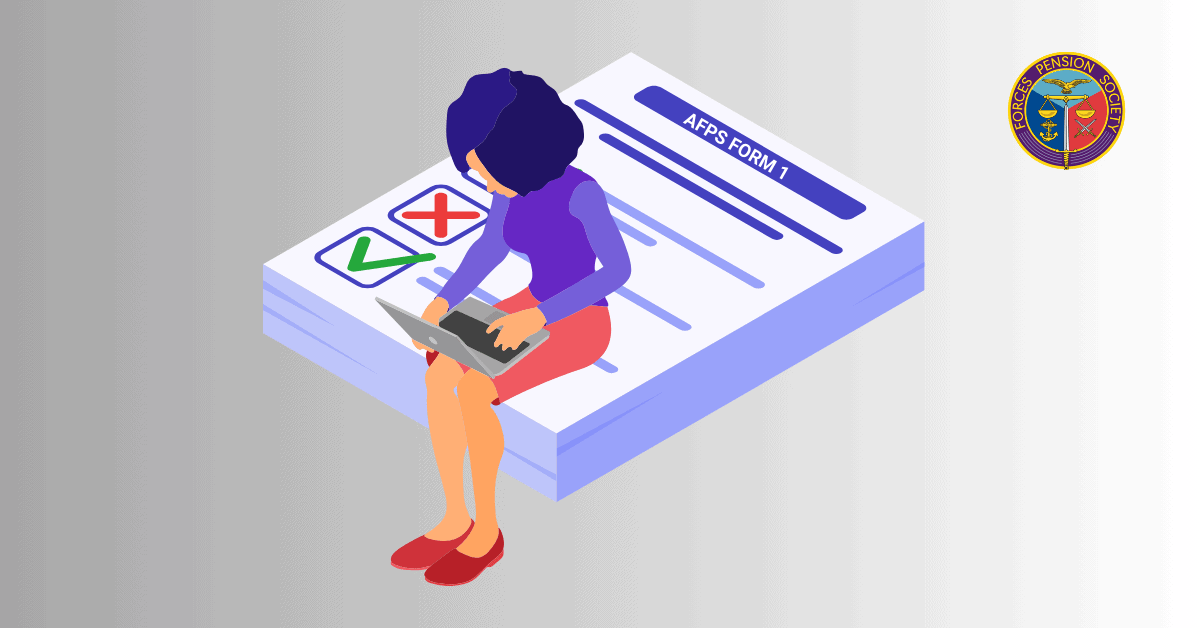
Strange as it may seem, some people leave then take up an Armed Forces post some time later, without thinking what it might do to any terminal benefits they have received. If none are in payment, fine, but if someone leaves with an AFPS 75 Immediate Pension (IP) or an AFPS 05 pension in payment, with Early Departure Payment (EDP) benefits in payment or having received a Resettlement Grant (RG) they need to understand the impact that further service could have on them.
In this article we concentrate on what happens to AFPS pensions in these circumstances. Next month’s article will look at what happens to EDPs and RGs on taking up another military post.
AFPS 75 and AFPS 05 rules say that if you leave Regular service with a pension and take up a post which would entitle you to membership of a scheme providing Service pension benefits, your pay in your new post plus your pension cannot exceed your old rate of pay (ROP), plus inflation if appropriate, without your pension being affected. This does not mean that the new ROP can never be more than the old – it can, but the pension will stop. Some of you might think ‘That’s OK, I will opt out of the pension scheme in my new post and avoid abatement!’ but that will not work because the rules do not require you to be a scheme member in your new service for the abatement rules to apply.
AFPS 15 does not contain such a rule but that does not change AFPS 75 or AFPS 05 rules in any way – pensions under those schemes will be abated even though your new service will be pensionable under AFPS 15.
The AFPS 75 IP is paid after 16 years’ service from age 21 for officers or 22 years’ service from age 18 for Other Ranks (OR) – this means that the pension could be paid as early as 37 for an officer and 40 for an OR, leaving plenty of time for further military service. AFPS 05 pensions are not normally paid before age 55, so fewer AFPS 05 members will see their pensions abated, as few will take on further military posts after that age – but some do.
Let’s have a look at a few simple examples showing how the abatement rules work. We have used AFPS 75 cases but the same principles apply to AFPS 05 members. We are assuming that in each case the individual has 22 years’ service and that retirement took place on 1 April 2021. We have used the 2020/21 Pension Code which will not be amended for 2021/22, as rates of pay are not due to be revised in that period. Under the rules at time of writing, the final 6 years of service will have been as AFPS 15 members, with the IP based on service prior to transfer (so, the IP rate used is 16/22nd of the 22 year rate for the individual’s rank for pension):
Tommy leaves as a WO2 with an AFPS 75 IP of £10,586. His pay on his last day of Regular service was £42,000. He takes up an FTRS job on a Full Commitment in the same rank. As his new ROP is equal to his old ROP, the pension stops. The position regarding abatement would not alter had all of his service counted in AFPS 75, nor would it alter if he had re-joined the Regular Armed Forces.
Michael leaves as a Flight Sergeant with an AFPS 75 IP of £9,839. His pay on his last day of Regular service was £40,000. He takes up an FTRS job on a Limited Commitment on a ROP of £34,000. Because his new ROP plus IP totals £43,839 his pension is abated by the £3,839 by which this total exceeds his old ROP. Had all of his service counted in AFPS 75 his pension would be £13,529 and his abatement would be £7,529.
Susan leaves as a WO1 with an AFPS 75 IP of £11,973. Her pay on her last day of Regular service was £50,000. She takes up an Additional Duties Commitment (ADC) post (so, part time) in the same rank. Her new ROP is £35,000. Because her new ROP plus IP is less than her old ROP no abatement is necessary. Had all of her service counted in AFPS 75, her IP would have been £16,463, so her pension would have been abated by the £1,463 by which her old ROP was exceeded.
Des leaves as a Staff Sergeant with an AFPS 75 IP of £9,839. His pay on his last day of Regular service was £40,000. He joins the Military Provost Guard Service (MPGS) as a Private and his new rate of pay is £28,000. Because his new ROP plus IP is £37,839, his pension is not abated as the total does not exceed his old ROP. Had all of his service counted in AFPS 75 his pension would be £13,529 and it would be abated by the £1,529 by which his new ROP plus pension exceeded his old ROP.
Freddie leaves as a Petty Officer with an AFPS 75 IP of £8,637. His rate of pay on discharge from Regular service was £40,000. He joins the Part Time Volunteer Reserve (PTVR). He would have to earn in excess of £31,363 before abatement took place. Had he not been transferred to AFPS 15 his IP would have been £11,877 and he would have to earn over £28,123 from his PTVR duties before his pension was abated. Were Freddie to be sent on an operational tour, the abatement rules do not apply, so no problem there.
Annual pay rises do not affect the abatement calculation but promotion or taking on a fresh commitment does. The calculation is done with reference to ROP on the last day of Regular service, plus inflation.
Abatement lasts only as long as the further military service. If, on leaving this further service, the individual is an AFPS 75 member who is aged 55 or over, the pension is restored at its original value plus any Consumer Prices Index (CPI) increases which have occurred since the original pension award. If the individual is still in the further military service at age 55, although his or her pension is still abated, he or she is entitled to receive the CPI rises that would have been applied had the pension been in payment unabated.
So does abatement matter? It is – or should be – a major consideration for AFPS 75 members thinking about commuting. Commutation gives members the opportunity to ‘buy’ a second lump sum and pay for it from pension before tax. It is the fact that commutation reduces the individual’s tax liability that makes it attractive to many people – so it is important to make sure that sufficient pension remains in payment to pay for it! If there isn’t, the repayments are taken from pay after tax.
If you are a member of the Forces Pension Society and have any questions on abatement or any other pension-related issue, contact us on pensionenquiries@forpen.co.uk. If you are not a member but would like to join click here .
Author: Mary Petley, Forces Pension Society – 24 May 2021 for the June issue of Pathfinder




